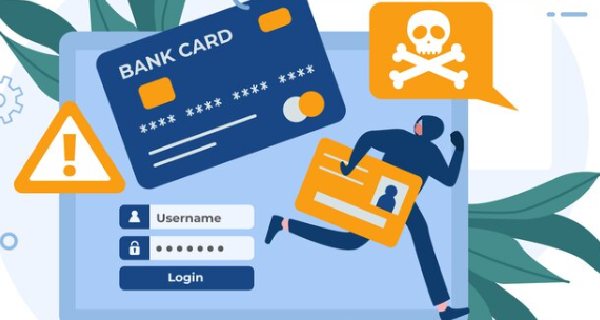Prevent Credit Fraud : For the past two weeks, Rishika Singh, a 40-year-old content editor, has been receiving SMS messages from a multinational bank regarding a credit card ending in “xxxx.” The messages state that payment is due and that unpaid bills are affecting her credit score. However, Rishika has never had any dealings with this bank, nor has she ever owned a credit card from it. A subsequent call from the bank claimed that the amount due exceeded ₹64,000.
Suspected Phishing Attempt
Initially, Rishika suspected that these messages were part of a phishing scam designed to extort money. To investigate, she contacted the bank’s customer service. Surprisingly, a recorded message referred specifically to the credit card number in question, indicating that her phone number was indeed associated with an account in the bank’s records.
Expert Consultation and Verification
Seeking clarity, Rishika consulted a banking expert who reviewed the SMS messages. The expert confirmed that the messages appeared legitimate, with headers matching those of messages he receives from the same bank. This ruled out the possibility of phishing.
Credit Report Check
Following the expert’s advice, Rishika checked her credit report. Although it displayed her existing loan accounts, the MNC bank’s credit card was not listed. Adhil Shetty, CEO of Bankbazaar.com, explained that this discrepancy likely occurred because the card is registered under someone else’s name, address, and ID number. Therefore, any payment delays would not affect Rishika’s credit score.
Incorrectly Mapped Phone Number
Experts suggest that Rishika’s phone number might have been entered incorrectly or deliberately when someone else applied for a credit card. Sumanta Mandal, founder of Technofino, noted that while online applications require phone number verification via OTP (one-time password), offline applications through agents might skip this step. Consequently, the bank might have an incorrect phone number on file.
Resolving the Issue
How to Prevent Credit Fraud
Rishika needs to contact the bank to inform them that her phone number is mistakenly linked to someone else’s credit card account. She should communicate with customer service and follow up with emails, keeping a record of all correspondence as evidence. If customer service does not resolve the issue satisfactorily, she should escalate the matter to the bank’s grievance officer.
Escalation to Banking Ombudsman
If the bank fails to respond within 30 days or if the response is unsatisfactory, Rishika can escalate the issue to the banking ombudsman through the online portal (https://cms.rbi.org.in/cms/index page.html#eng). Experts also assure that the misuse of KYC (Know Your Customer) details is unlikely. However, if such misuse (Prevent Credit Fraud) occurs, Rishika should file a report with the cybercrime cell of the police department.
Preventative Measures Against Credit Fraud
- Regularly check their credit reports, either monthly or quarterly, to monitor credit transactions.
- Sign up for SMS alerts from lenders and card issuers and review all notifications.
- Verify the legitimacy of transactions in monthly credit card statements.
- Periodically review bank account statements to ensure all recorded expenses are accurate.
- By taking these steps, individuals can promptly detect and address any unauthorized activities or errors related to their credit accounts.
ALSO READ : Overcoming Credit Card Debt : Strategies and Common Mistakes












